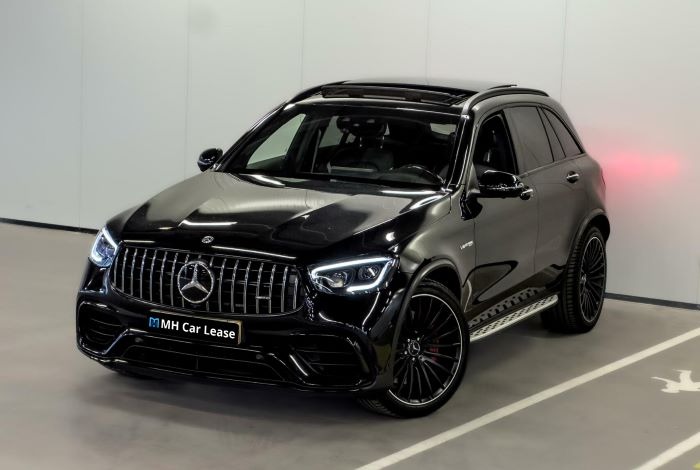When I first heard about halal leasing, I was a little confused. I had friends talking about it in the context of getting a car without worrying about interest or anything that goes against Shariah law, but at the time it felt like just another finance buzzword. Fast forward a few years and here I am, sitting across from an Islamic banking advisor, trying to figure out whether a halal lease auto plan could actually help me get my dream car while staying true to my values. That moment changed the way I looked at finance forever, and I want to share that journey with you through this article.
What is halal leasing
Halal leasing is a form of financing where assets like cars, equipment, or even property are leased in a way that aligns with Islamic finance principles. The biggest difference compared to conventional leasing is the absence of riba, or interest. Instead, the arrangement is based on a contract such as Ijara, where you pay rent for using the asset, and sometimes it includes an option to own the asset at the end.
When you hear about halal lease auto products, they are essentially the same idea but tailored specifically for vehicles. For someone like me who once felt uneasy signing a standard finance agreement filled with interest clauses, this was refreshing. It made me realize that financial products don’t have to be at odds with faith or ethics.
Why people choose halal leasing
Imagine wanting to buy a car but every loan offer you see involves interest. For Muslims who want to avoid riba, that immediately creates a problem. Halal leasing solves this by offering a model that is Shariah-compliant.
Personally, I chose halal leasing not just because of my faith, but also because it felt more ethical. The agreement was transparent. I knew exactly what I was paying for, and there were no hidden fees disguised as interest.
Other reasons people choose it include:
- Aligning with Islamic values and Shariah law
- Transparent and ethical structure
- Flexibility in terms of asset usage
- The possibility of ownership at the end of the lease
The principles behind halal leasing
At its core, halal leasing follows Islamic finance principles. These include:
- Prohibition of riba (interest): Payments are structured as rent, not as interest charges.
- Asset-based financing: The lease is tied to a real asset, whether it’s a car, a piece of equipment, or property.
- Shared risk: Both the lessor and lessee share responsibilities. For example, major maintenance may be on the owner, while day-to-day use is on you.
- Transparency: Every part of the contract is clear and approved, sometimes even by a fatwa committee.
How halal leasing works in practice
The process is surprisingly straightforward. Let’s use a halal lease auto as an example:
- Choose the asset: You pick the car you want.
- Bank or institution buys it: The Islamic financial institution purchases the car on your behalf.
- Lease agreement: You sign an Ijara contract, agreeing to pay monthly rent for using the car.
- Ownership options: Depending on the contract, you may return the car, renew the lease, or purchase it through a lease-to-own (Ijara wa iqtina) arrangement.
It’s a bit like renting an apartment with the option to buy it later. You enjoy the use of it now while knowing there’s a path to full ownership if you want it.
Halal leasing versus conventional leasing
One of the things that helped me commit was doing a side-by-side comparison. Here’s what I found:
- Conventional Leasing: Focuses on interest, hidden charges, and the bank holding most of the control.
- Halal Leasing: Focuses on transparency, Shariah law compliance, and asset-based agreements.
Think of it like comparing two recipes for the same dish. One uses questionable ingredients that don’t align with your diet, while the other uses fresh, wholesome ones that leave you feeling good after eating. Both fill you up, but only one truly satisfies.
Misconceptions about halal leasing
Over the years, I’ve heard people say things like:
- “Isn’t halal leasing just the same as conventional leasing with a different name?”
- “Does it really avoid interest, or is it just hidden somewhere else?”
I had the same doubts at first. But after sitting down with advisors and studying Islamic finance principles, I realized the difference is real. The contracts are structured in a way that ensures compliance with Shariah law, often backed by scholars and even fatwa approvals.
It’s not about rebranding conventional finance; it’s about offering an alternative that’s both practical and ethical.
The future of halal leasing
As Islamic finance grows globally, halal leasing is becoming more accessible. Financial institutions are offering more tailored products, and companies like MH Car Lease are making them available to everyday people like you and me.
Final thoughts
When I look back at my decision to choose halal leasing, it feels less like a financial choice and more like a lifestyle decision. It allowed me to align my financial commitments with my values, and that’s a powerful thing.
If you’re curious, my advice is simple: do your homework, ask questions, and consider reaching out to specialists like MH Car Lease who understand both the financial and spiritual dimensions of the journey.

